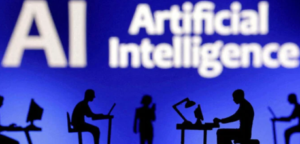
🤖 Artificial Intelligence Now Thinks Like Humans, Chinese Scientists Reveal
Artificial Intelligence (AI) has crossed a major milestone. A groundbreaking study by Chinese scientists has revealed that modern AI systems, particularly large language models (LLMs), are beginning to think and process information like humans. This revelation has stunned global tech experts, raising both excitement and concern about the future of AI.
🧠 How Close is AI to Human Thought?
The study, conducted by researchers from the Chinese Academy of Sciences and South China University of Technology, found that advanced AI tools like OpenAI’s ChatGPT and Google’s Gemini (Bard) are capable of organizing information in logical sequences, even without explicit training to do so.
This capability indicates that AI is not merely following programmed instructions but is developing a human-like understanding of the world, a level of cognition previously thought to be exclusive to humans.
🧪 The Breakthrough Study
Researchers evaluated how these large language models (LLMs) deal with unstructured data and observed their ability to form spontaneous systems of understanding — a behavior very similar to human reasoning.
The study shows that these models can recognize patterns, assign contextual meaning, and even prioritize information — tasks that are essential to human decision-making and critical thinking.
🎧 Multimodal AI: Beyond Text
The researchers also examined Multimodal Large Language Models (MLLMs), which integrate not only text but also visual and audio data. These models go beyond traditional LLMs by mimicking how humans process information from multiple senses simultaneously.
MLLMs can form a deeper, more comprehensive understanding of objects, environments, and interactions, making them even more aligned with human-like perception.
According to the study, MLLMs use multimodal data to enhance object representation, giving them an almost intuitive grasp of the world around them.
⚠️ Risks and Ethical Concerns
While these advancements offer tremendous possibilities, they also raise serious ethical and safety concerns. Experts warn that such intelligent AI systems, if left unchecked, could pose risks to societal structures, job security, and personal privacy.
As AI continues to evolve rapidly, calls are growing louder for strict global regulations, ethical frameworks, and responsible use to prevent misuse or unintended consequences.
🌐 What’s Next?
The AI revolution is accelerating, and with each new breakthrough, the line between machine and human cognition continues to blur. Scientists emphasize the need for international collaboration to shape the safe future of AI.
While these developments could revolutionize healthcare, education, and productivity, they must be guided by transparency, accountability, and human oversight.